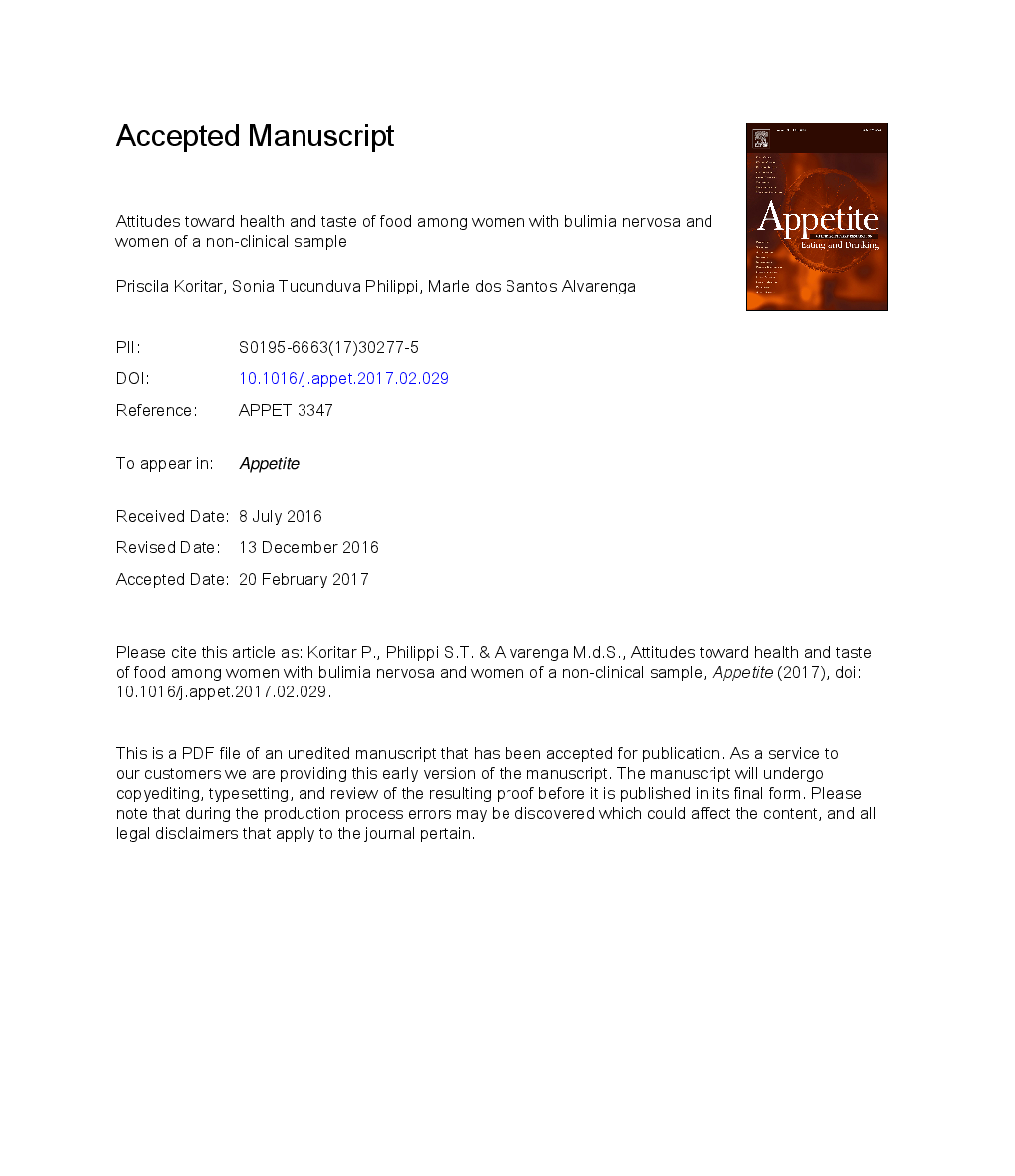ترجمه فارسی عنوان مقاله
نگرش نسبت به سلامت و طعم غذا در میان زنان با عصب بیلیمی و زنان نمونه غیر بالینی
عنوان انگلیسی
Attitudes toward health and taste of food among women with bulimia nervosa and women of a non-clinical sample
| کد مقاله | سال انتشار | تعداد صفحات مقاله انگلیسی |
|---|---|---|
| 120649 | 2017 | 27 صفحه PDF |
منبع

Publisher : Elsevier - Science Direct (الزویر - ساینس دایرکت)
Journal : Appetite, Volume 113, 1 June 2017, Pages 172-177
ترجمه کلمات کلیدی
سلامتی، طعم لذت، انتخاب غذا، نگرش، اختلال خوردن
کلمات کلیدی انگلیسی
Health; Taste; Pleasure; Food choice; Attitude; Eating disorder;

